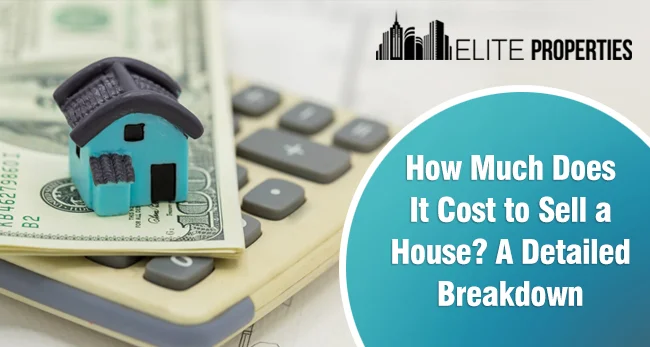Introduction:
Selling property these days can be a big hassle. As we’ve progressed with time, so have our requirements for quick solutions. Consequently, we’re increasingly seeking alternative methods beyond conventional means in nearly every aspect of life. One such hassle has been to sell your property. To put things into perspective this painstakingly difficult task can be accomplished through “conventional” methods, yet they come with their drawbacks as you will see below.
The Conventional Models:
- The traditional real estate agent model:
This remains the dominant method for selling homes in the USA and involves hiring a licensed real estate agent to list, market, and sell your property.
Agents handle negotiations, paperwork, and guide you through the entire process. And not to forget the commission of 5% to 6% of the home’s sale price or 2.5% to 3% per agent.
This also involves the customer to whom the property on the show is the ideal “Dream Home”.
2. For Sale by Owner (FSBO):
- FSBO sales offer an alternative for those seeking to save on commissions, but they require significant effort.
- As a Seller one needs to handle the entire process by themselves, without the assistance of a real estate agent. This includes marketing, showings, negotiations, and paperwork.
- Similar to the Traditional Real estate agent model this comes with the wait for that ideal customer.
The Solution
“What is the solution to this peril?” People might ask, and this is where Elite Properties comes in.
At Elite Properties we make the tiresome undertaking of selling a house quick and seamless. No longer do you need to wait for the agents to get back to you, or wait for the right buyer, or those frustrating open house weekends. Moreover, we buy house for cash.
How Cash buyers at Elite properties Eliminate all the fuss that comes along with the Conventional means of selling houses:
- Speed and Convenience:
- Fast Closing: Unlike Traditional home sales which can take months as it involves appraisals, inspections, and mortgage approvals. Cash buyers at Elite Properties close the deals in a matter of days or weeks, significantly reducing the time taken to complete the transaction.
- Reduced Hassle: Cash sale helps you to bypass the lengthy process of staging, showing, and negotiating with multiple potential buyers.
- No Contingencies: Cash buyers typically purchase homes “as-is,” eliminating the risk of deals falling through. Unlike traditional buyers who may have financing or inspection contingencies.
- “As-Is” Sales:
- No Repairs or Renovations: The main issue when selling a house comes down to its condition. If it has a lot of wear and tear and needs fixing, it may have a negative impact on potential buyers. spend a significant amount to fix a place they are eventually going to sell. But when it comes to Cash Buyers, they are willing to buy houses is “As-Is,” meaning there is no need for the owner to invest time and money for any repairs and renovations before selling, which can cost a lot these days.
- Perfect for Distressed Properties: If you’re staring down a mountain of repairs, or the shadow of foreclosure looms, finding a cash buyer is the most viable option.
- Certainty and Security:
- Guaranteed Sale: In a world of uncertainty, a cash offer is one of the, if not the best deal, at least compared to traditional sales. One completely avoids the uncertainty of mortgage approvals or dealing with buyers who back out.
- Simplified Process: The benefits of Cash offers are that these are streamlined transactions that do not carry the stress and anxiety that accompany traditional real estate sales.
- Financial Benefits:
- Quick Access to Funds: Selling for cash allows sellers to quickly access their equity, which can be beneficial for various financial needs.
- Reduced Closing Costs: Having fewer closing costs compared to traditional sales is why Cash Buying is often potentially more cost effective.
Conclusion:
For those seeking a quick, convenient and hassle-free transaction, selling your home to a cash buyer is the way to go. With offerings such as fast transactions, assured deals and financial advantages, cash sales prove to be a compelling alternative to the traditional methods of sale. If you are considering selling your property you need to look no further as Elite Properties is your one stop solution for not only selling but buying and renting properties.
Frequently Asked Questions (FAQs)
- Who Exactly is a Cash Buyer?
A Cash buyer can be an individual or a company that is into the purchase of properties by utilizing their own funds with no dependency on traditional mortgage financing, they will buy homes for cash - Is a cash sale faster compared to a traditional sale? If so, then by how much?
Unlike Traditional sales which usually take several months due to inspections, approval of mortgages and other contingencies, cash sales get completed within days or weeks. - Is there a need to do any repair work or renovations before selling to a cash buyer?
Cash buyers usually purchase homes “as-is,” meaning there you don’t need to invest in repairs or renovations .
- What is the meaning of “as-is”?
Out of all the benefits that come with selling a property to a cash buyer the main one is being able to sell it by making repairs or improvements, hence “As-is” means the buyer agrees to purchase the property in its current condition. - Are cash offers lower than traditional offers?
While Cash offers sometimes may be slightly lower than what the potential market value might be at the time, it negates the staging, holding and repair costs, balancing out the difference. - Who Should Consider a Cash Buyer?
- Homeowners facing foreclosure or financial hardship.
- Individuals looking to relocate quickly.
- Those inheriting properties they don’t want to maintain.
- Sellers with homes requiring extensive repairs.
- People seeking a hassle-free, fast sale and Cash for home









